For regular updates, find me on Twitter and Instagram or LinkedIn and find my latest articles on my website.
Category Archives: Uncategorized
Press Awards 2020 winner
Diversity needs recognition in all its forms, both in terms of who’s doing the reporting and in terms of the issues being reported.
My stories for The Guardian in the Press Awards were commissioned by my former editor Alison Benjamin, and they exist only thanks to people, families and allies who gave time to share words on issues that are too often overlooked.
Much respect to all the journalists I was originally shortlisted with too – I’m in some very fine company.
You can read some of the articles for The Guardian here.
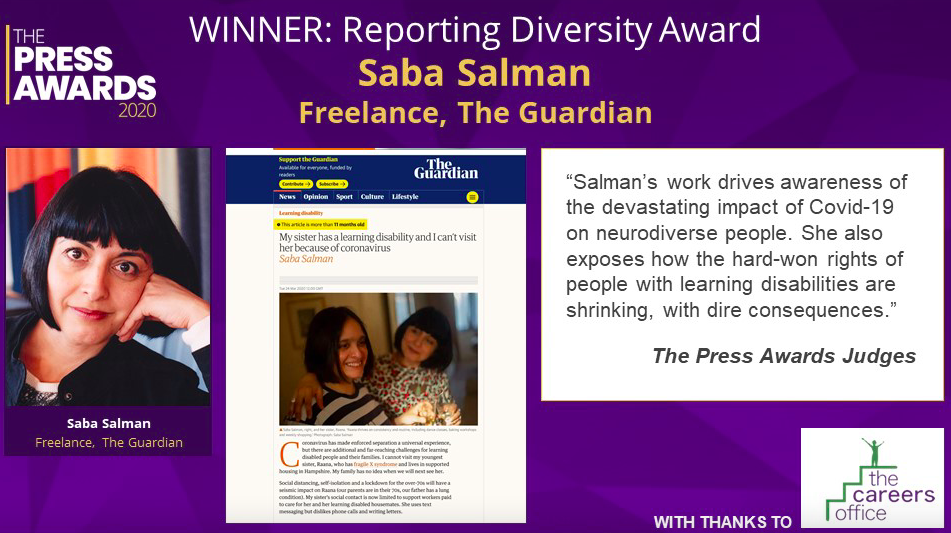
Reporting diversity
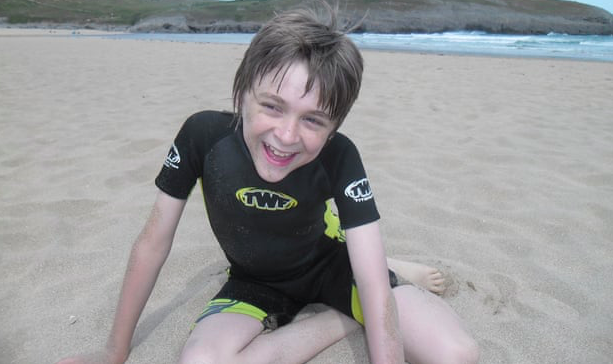
I’m delighted to have been shortlisted for the Society of Editors’ Press Awards in the ‘reporting diversity’ category.
I’m in fine, strong company in the category and delighted that the Society of Editors is considering the issue of diversity in all its forms.
The articles I’ve been shortlisted for have all been published by The Guardian, and they focus on the brutal impact of Covid on disabled people and their families. The pieces show how the pandemic intensifying the huge inequality already faced by part of our population.
The shortlisted pieces are:
My sister has a learning disability and I can’t visit her because of Coronavirus
Coronavirus restrictions have robbed disabled people of their independence
‘My fear is he’ll never come home’: the learning disabled people locked away in lockdown
I’m privileged to work with people and families and report on these vital issues. I’m also grateful for a supportive, thoughtful and sensitive commissioning editor, Alison Benjamin, who commissioned me to write these articles for The Guardian’s Society pages.
Read more about the awards here.
All learning disabled people should get the covid vaccine
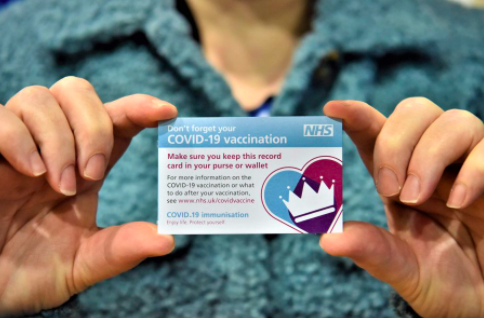
Imagine the anxiety of knowing you are at a greater risk of dying from the Coronavirus but are at the back of the queue for a life-saving vaccination and, if hospitalised, doctors might decide not to save your life.
This is what learning disabled people are facing in this pandemic. They are the hardest hit, yet the impact on their mental health is being overlooked.
I wrote this article for Byline Times on how the government is ignoring the impact of Covid on learning disabled people like my sister Raana.
Covid recovery ignores disabled people
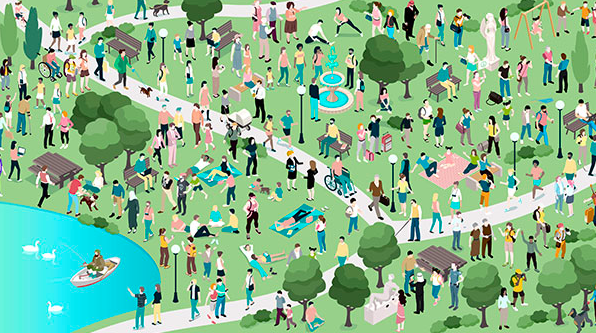
Debates about Covid-19 recovery and economic renewal ignore disabled people. This is shameful given that even before the virus, the UK’s 7.7 million working-age disabled people already faced significant inequalities.
I wrote this opinion piece for the RSA Journal.
THE SOCIAL ISSUE IS ON A SUMMER BREAK
Back soon…
Raana’s Happy Art Gallery
My youngest sister Raana’s in supported living and keeping in touch is tricky during the coronavirus lockdown because she doesn’t use the phone. But she loves drawing and making, so I spent a few days collecting pictures of happy handmade arts and crafts to message her, including pictures of her own, colourful creations.
I decided to create a mini-gallery of crowdsourced crafts and art from the gorgeous images I received. It features homemade treasures from learning disabled people and their families; Raana’s Happy Art Gallery can be viewed here.
Here’s one bright, joyful example:
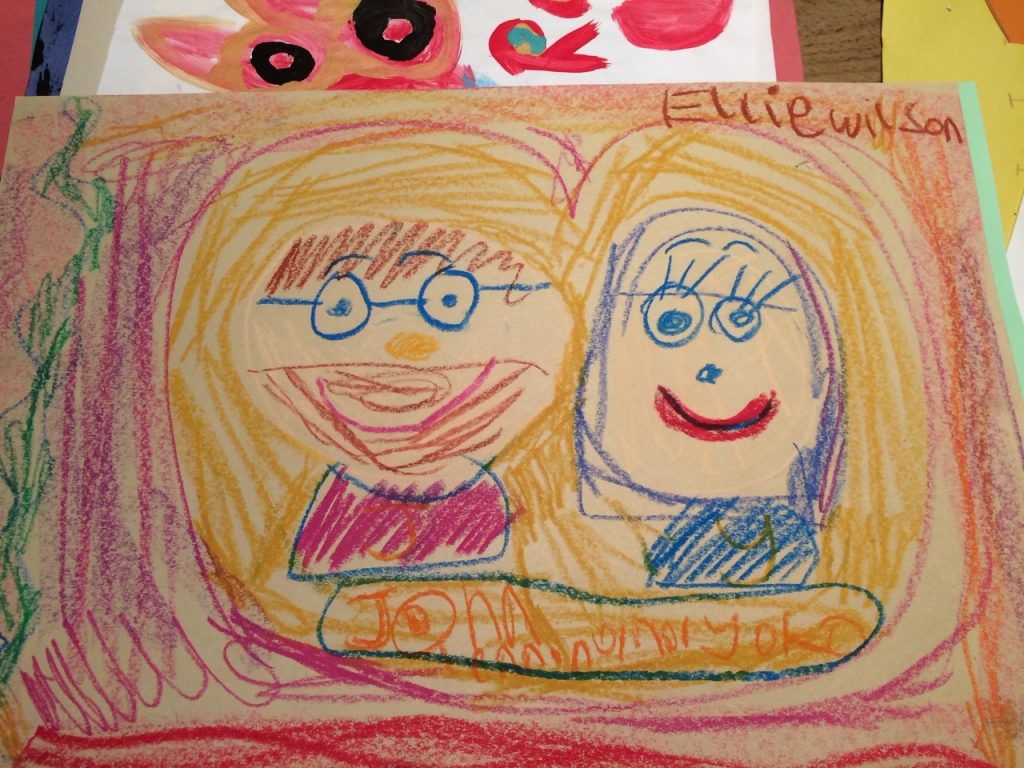
The gems in Raana’s gallery include abstracts, flowers, faces, figures, animals, colour – all made and shared with love. Thanks to all the amazing people and organisations who sent happy art and messages on Twitter and Instagram – I’ve spent the best part of a week gazing in happy distraction at the gallery.
Raana messaged me a characteristically short but accurate verdict about the art share: “that good” and then “very kind”.
Check out Raana’s Happy Art Gallery – open 24 hours and permanently free!
beautiful Minds
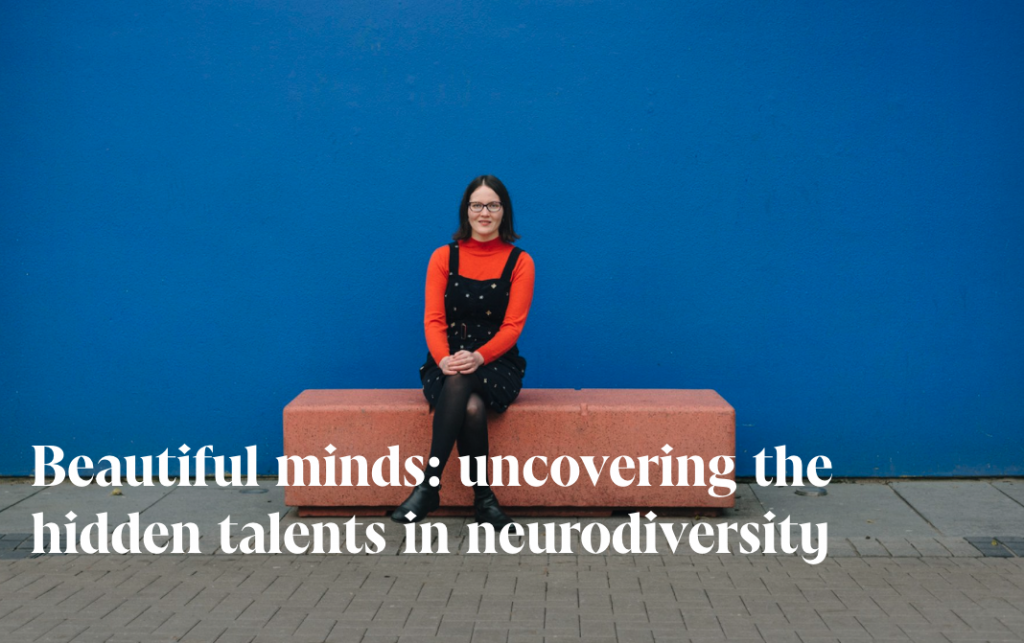
Rather than simply accepting people with neurodiverse conditions like autism or dyslexia, what if we recognised their hidden talents?
Positive News has just posted my article about this issue. I heard from four neurodiverse on how the way their brains work has been key to their success.
As Alice, pictured above, says: “I’ve encountered difficulties that other people don’t have to deal with, and that’s made me incredibly caring. I can put myself in someone else’s situation. I respond in a very different way to people who aren’t neurodiverse.”
You can read the entire piece here
MAde possible: in hardback
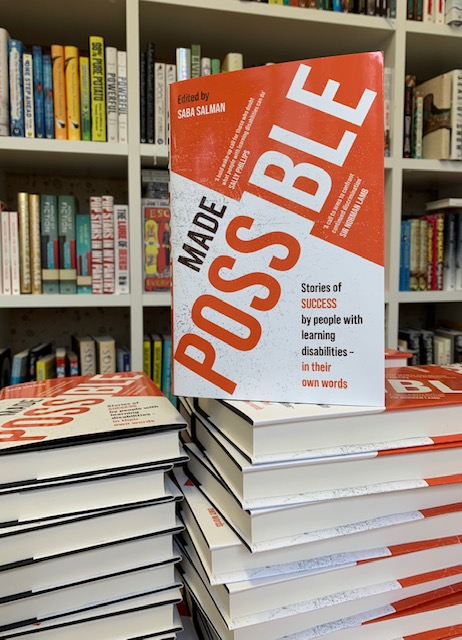
Book news: the hardbacks of my upcoming book, Made Possible, are now at the offices of my publisher, Unbound.
Copies will soon be in the hands of all of the great people who backed these first editions and therefore helped bring this book into the world.
The paperback’s out in May and is now available to pre-order from the usual places, like Foyles, Waterstones, Blackwells and Amazon.
In a nutshell, the book is 200 pages that challenge assumptions and it’s packed with power, joy, potential, humanity, humour and much more.
You can find out more about the background to the book on my publisher’s website and in this Guardian piece.
uniting to fight loneliness

Society is in the grip of a loneliness epidemic. Headlines regularly warn about the scale of this modern scourge, from describing how social isolation increases our risk of death, to lamenting Britain’s status as one of the most age-segregated countries in the world.
What command less column inches are the small-scale solutions. There is little consideration of how hyper-local schemes – when funded, publicised and replicated nationally – could tackle loneliness and shift perceptions about the most isolated people in the country.
I’ve just written about a new project that does just this, for Byline Times. Older people at The Beeches in Leatherhead, Surrey, a home run by housing and care charity Anchor, and pupils from Woodlands School meet weekly for singing sessions run by Intergenerational Music Making (IMM), a local community interest company.
Not only are the singers at opposing ends of the age spectrum (the youngest is five, the oldest is 90), they are from two of society’s most excluded groups: the adults have dementia or a disability or depression; the pupils have severe learning difficulties, complex needs or autism.
Uniting two such disparate groups for an hour a week at the care home has had astonishing results.
It’s a small, simple yet strong solution to the society’s most pressing issue – division. You can read the whole piece here.
